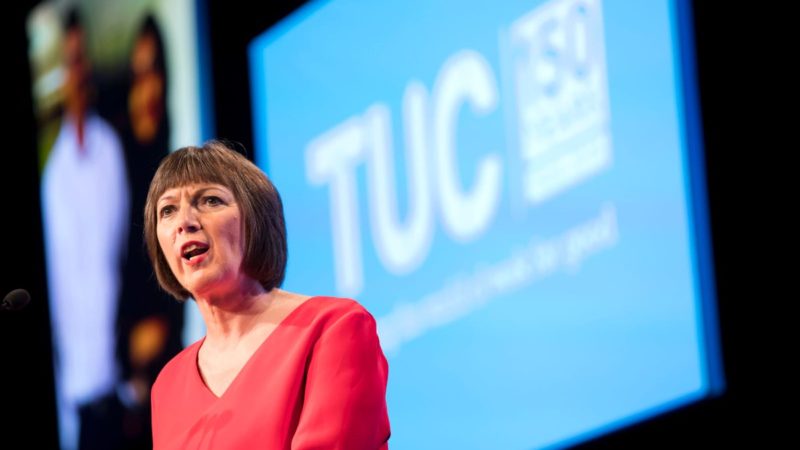
The TUC has welcomed the extension of the coronavirus job retention scheme announced by Chancellor Rishi Sunak today, calling the move a “big relief for millions”.
General secretary Frances O’Grady said: “We are pleased ministers have listened to unions and extended the job retention scheme to the autumn. This will be a big relief for millions.
“Changing the rules to allow part-time working is key to enabling a gradual and safe return to work. And maintaining the rate at 80% is a win for the pay packets of working families.
“As the economic consequences of Covid-19 become clear, unions will keep pushing for a job guarantee scheme to make sure everyone has a decent job.”
Labour’s Anneliese Dodds, the new Shadow Chancellor, commented: “The furlough scheme is a lifeline for millions. The government was right not to pull it away.
“It is welcome that the Chancellor has heeded the call by Labour, trade unions, and businesses for more flexibility in the scheme, to support employees to go back to work part-time.
“The government must clarify today when employers will be required to start making contributions, and how much they’ll be asked to pay.
“If every business is suddenly required to make a substantial contribution from the 1st August onwards, there is a very real risk that we will see mass redundancies.”
There will be no changes to the scheme until the end of July, and it will continue for all sectors and UK regions from August until October – but it will be changed during this extension period.
After July, employers will be able to bring furloughed staff back to work part-time. However, they will also have to start sharing the cost of paying the salaries with the government.
It is not yet clear whether the cost-sharing rates will be based on sector, on profits of the individual business, or whether the contribution required will be the same across the board.
Rishi Sunak has promised that further details of these changes will be revealed by the end of May. They will likely determine whether employers lay off workers or keep them furloughed.
The guarantee made by the government today is that workers on the scheme will receive the same level of support as they currently do, with 80% of their salary up to £2,500 a month covered.
Making the announcement in the Commons this afternoon, the Chancellor said: “This scheme has been a world-leading economic intervention, supporting livelihoods and protecting futures.
“7.5 million jobs have been furloughed – jobs we could have lost if we had not acted. Nearly a million businesses supported who could have closed shop for good.
“As we reopen the economy, we will need to support people back to work. We will do so in a measured way. I can announce today that the job retention scheme will be extended for four months until the end of October.”
Labour had called for the job retention scheme to be made more flexible, allowing for part-time work, which the government has agreed to implement in its latest announcement.
Reacting to the news, UNISON’s Dave Prentis said: “It’s good news for millions of workers… Supporting a part-time return to work from August is a sensible move which gives employers time to ensure workplaces are safe.”
But there are still concerns over the furlough scheme having a cap but no minimum income floor, which means workers normally on minimum wage can be furloughed on less.
GMB union said: “Important issues are still to be addressed, including the need for all workers to be paid at least their full minimum wage rates for their normal hours of work.”
Acting general secretary John Phillips added: “This announcement doesn’t remove the issue of workers forced back to work this week on crowded public transport, or the absence of PPE or enforceable social distancing measures when they get to work.
“We call on ministers to engage with the unions over the coming weeks to develop the details of the job retention scheme extension.”




More from LabourList
‘Labour council candidates – it’s tough, but all is not lost’
‘Labour won’t stop the far right by changing leaders — only by proving what the left can deliver’
‘Cutting Welsh university funding would be economic vandalism, not reform’